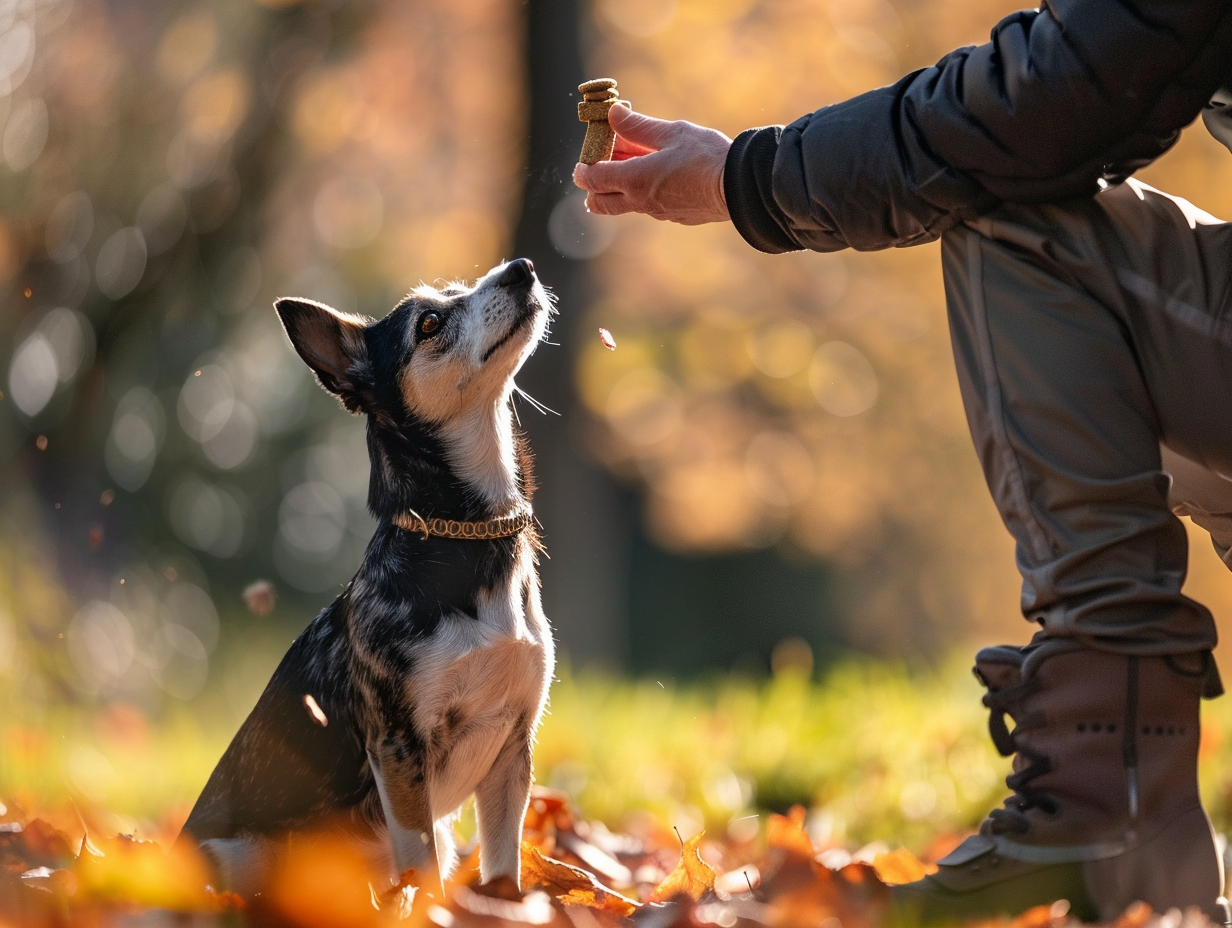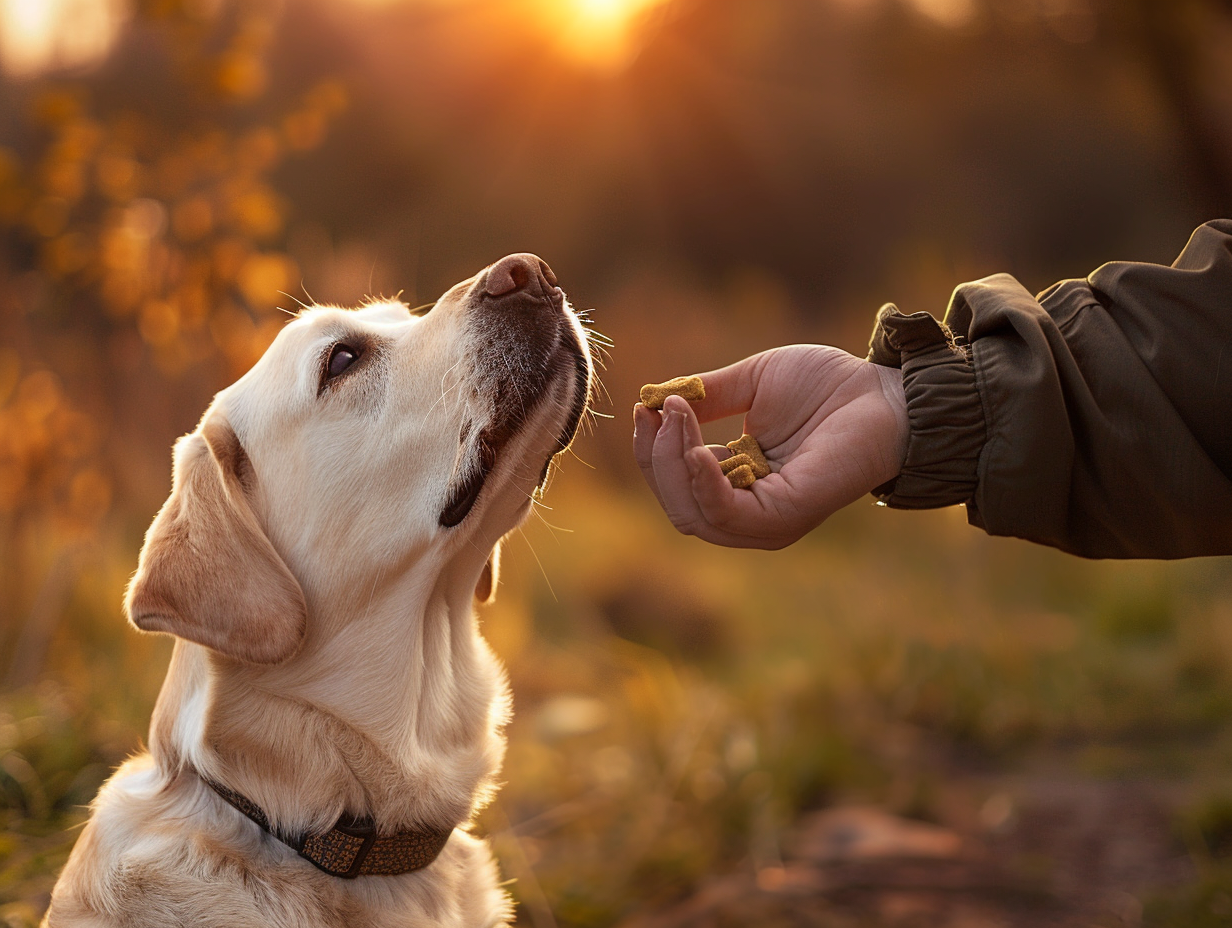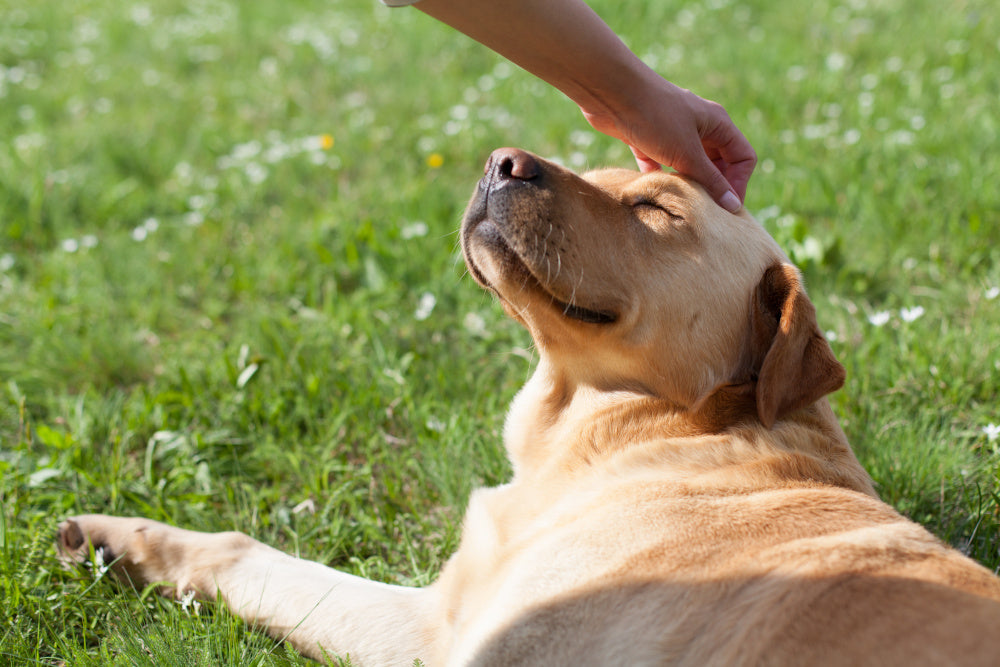Doggos love treats. We can use this to train them to respond to our cues. But what if a dog is not treat-motivated? How do we effectively train them when they’re not responding to this powerful incentive?
The answer lies in understanding your furry friend's unique preferences. This includes finding alternative positive reinforcement techniques and adjusting the training approach accordingly. However, before we delve into these strategies, we must understand why your dog avoids his usual treats.

8 Key Reasons Why Your Dog Is Not Food Motivated
Below are some of the most common reasons your dog might not respond to treats:
1. Health Issues
Many health conditions, such as dental or digestive issues, can affect your dog’s appetite. The pain and discomfort that come along with these health problems can make it difficult for your dog to eat and enjoy their meal. This also can have them avoid treats.
In such situations, you’ll probably notice that your dog exhibits other symptoms, such as lethargy, irregular bowel movements, weight loss, and changes in behavior.
If you suspect your dog's decreased appetite is due to an underlying health condition, it's advisable to take them to a veterinarian immediately.
2. Stress or Anxiety
When dogs experience stress or anxiety, they can become more concerned about their safety. As a result, they often lose interest in eating or training. Therefore, it becomes crucial to first identify the cause of your dog’s stress, which can include anything from loud noises to environmental changes.
Address these stressors and attempt to create a safe and calm training environment to help motivate your dog to respond.
3. Taste Aversion
Sometimes, your dog isn’t responding to treats simply because they don’t like the taste of the treats you’re offering. You may need to keep switching to different treats and observe how your dog reacts to find their favorite treats.
If you have been offering the same treat to your dogs for a long time and they seem less motivated now, the reason can be boredom. It could mean that your dog is bored with the taste of the same treat you have been offering them. The solution is simple: experiment with different textures and flavors of treats to reignite their enthusiasm.
4. They Are Full
A dog might not respond to treats if they’re already well-fed. This usually occurs when their training sessions don’t align with their natural feeding schedule, or they’re offered treats immediately after meals. In such cases, you may want to adjust the timing of the training sessions and ensure your dog has a healthy, well-balanced diet.
5. Misusing Treats
Misusing or overusing treats can reduce their appeal to dogs. For example, if you’re using treats to lure your dog into doing a lot of daily activities like sitting or walking, then your dog might start to associate treats with routine tasks, which reduces their value as a special reward.
If dogs think treats are a regular part of their routine, it could make them less motivated to respond when used as training rewards.
6. External Distractions:
Not all dogs share the same attention span, and especially puppies are known for their shorter attention spans. They’re easily distracted by their environment, which is filled with various sights, sounds, and smells.
Therefore, choosing a quiet and distraction-free setting for training sessions can be better to help them maintain their focus.
7. Negative Association
Dogs can be negatively associated with many daily tasks, including bathing, brushing, or nail trimming. If you have ever used treats to trick them into doing these activities, they might think the same treats are traps. They may develop a negative context with the treats, resulting in them not responding to them altogether.
8. Dog Breed
How a dog will respond to treats when training can vary depending on its breed. For example, breeds like Labradors and beagles are usually highly motivated and respond well to treats. On the other hand, terriers, herders, and guardians breed dogs tend to be less food-motivated. For these breeds, you’ll likely have to find alternative methods for training.

7 Excellent Ways To Help Dogs Become More Food Motivated
Here are a few things you can do when your dog isn’t treat-motivated:
1. Explore Alternatives
You don’t have to limit yourself to treat rewards while training your dog. You can also use non-food rewards and positive reinforcement techniques to engage them during training. It all comes down to your dog's preferences and understanding what motivates them.
Some of the most common alternatives you can use while training your dog include
- their favorite toys as a reward
- cheerful and enthusiastic tone for verbal praises
- physical touch like petting, scratching, or cuddling
- interactive games like tug-of-war or hide-and-seek
- access to their favorite activities like running in the backyard, car rides, or splashing in a sprinkler
2. Use High-Value Treats
If treats become a regular part of a dog’s daily routine, they might lose their appeal and motivation during training sessions. You can address this by getting different high-value treats reserved exclusively for training. This may help keep the treats unique and ensure their effectiveness as rewards during training sessions.
3. Adjust the Training Time
The timing of the training session may also affect its success or failure. For example, if you train your dog after their meal time, they could have low energy levels and be less motivated to respond to treats. You can adjust the training sessions to work around your dog’s meal times and other routine habits.
4. Adjust the Training Environment
Dogs can be distracted easily and even experience stress by the slightest change in their environment or any unfamiliar object. Thus, it’s essential to choose their training location wisely.
It is ideal for the space to be safe, calm, and familiar so your dog doesn’t feel anxious or stressed. It should also be free of distractions so they can focus on the training session and respond to your cues appropriately.
5. Make it a Routine
Establish a proper routine for your dog to promote a positive response. Choose specific times and spaces for training sessions each day. Use consistent commands and cues to avoid confusion.
Remember that this predictability will help your dog thrive in training and reduce stress and distractions.
6. Simplify The Training
There’s a chance your dog might feel overwhelmed by the training session. It can make them less likely to respond to treats and your commands. You should consider adding positive reinforcement to make your dogs feel more confident.
7. Consult a Vet
If you have tried everything to motivate your dog and nothing seems to work, then you may want to consult a professional. A veterinarian or animal behaviorist can help you understand your dog’s behavior and why they aren’t responding to treats during the training.
They can even help you diagnose any underlying health problem that may impact your dog's behavior.

Things to Avoid When a Dog Isn’t Food Motivated
When your dog isn't treat-motivated, it's essential to avoid certain pitfalls, such as:
- Avoid being overly assertive during training sessions.
Don’t force your dog to eat their treats. - Don't insist on long training sessions, which can make your dog lose interest.
- Avoid scolding or displaying any form of frustration when your dog doesn't respond to commands or treats.
- Instead of relying only on treats, introduce a variety of rewards, including praise and toys.
- Don’t neglect mental stimulation in your dog’s routine. Ensure you’re engaging them in activities that challenge their mind during training.
Summing Up: How to Train a Dog That is Not Treat Motivated?
It’s often challenging to train a dog that isn’t treat-motivated. However, the most important thing is first to determine the underlying cause of why the dog isn’t responding to the reward treats. If it’s caused by a health problem, stress, or anxiety, you can seek professional help from a veterinarian.
In other situations, you can change your training approach and try different alternatives to understand what motivates your dog. You can adjust the training time and environment or incorporate high-value treats to see how your dog responds.
If the problem persists, we recommend you consult a veterinarian or animal behaviorist to understand why your dog isn’t treat-motivated.

FAQs
Let’s answer some frequently asked questions about training a dog that isn’t food-motivated:
1. How to train a non-food-motivated dog?
When training a non-food-motivated dog, you should understand the underlying reasons for their lack of interest in treats. If it’s caused by a health problem, stress, or anxiety, you can seek professional help from a veterinarian.
You can also change your training approach and try alternatives like their favorite toys and verbal praises. You can adjust the training time and environment or incorporate high-value treats to understand your dog’s preferences.
2. Why is my dog not treat-motivated?
There can be various reasons why a dog is not treat-motivated. It can include health issues (like dental problems and digestive discomfort), stress, taste aversion, satiety, external distractions, or a history of negative associations with the same treats.
Individual preferences and breed characteristics can also play a role in some dogs feeling less motivated by treats.
3. What kind of health issues can make a dog non-food motivated?
Several health problems can make a dog non-food-motivated. For example, dental issues such as tooth decay can cause pain and discomfort while eating. Even digestive issues can lead to nausea and discomfort, which affects that appetite.
In such cases, it’s essential to consult a veterinarian to identify and treat the underlying health concern.
4. Can I make my dog treat motivated?
Yes, specific strategies can be implemented to help motivate dog food. You can start by incorporating high-value treats reserved exclusively for training. Setting a proper routine and choosing specific times and space for daily training sessions is also essential.
Also, ensure the training environment is safe, calm, and distraction-free. It’ll help your dog feel less stressed and more motivated during the training session.
However, if the problem persists, we recommend you consult a veterinarian or animal behaviorist to understand why your dog isn’t treat-motivated.
Reference: https://outwardhound.com/furtropolis/pet-parenting/how-to-train-a-dog-that-is-not-food-motivated





